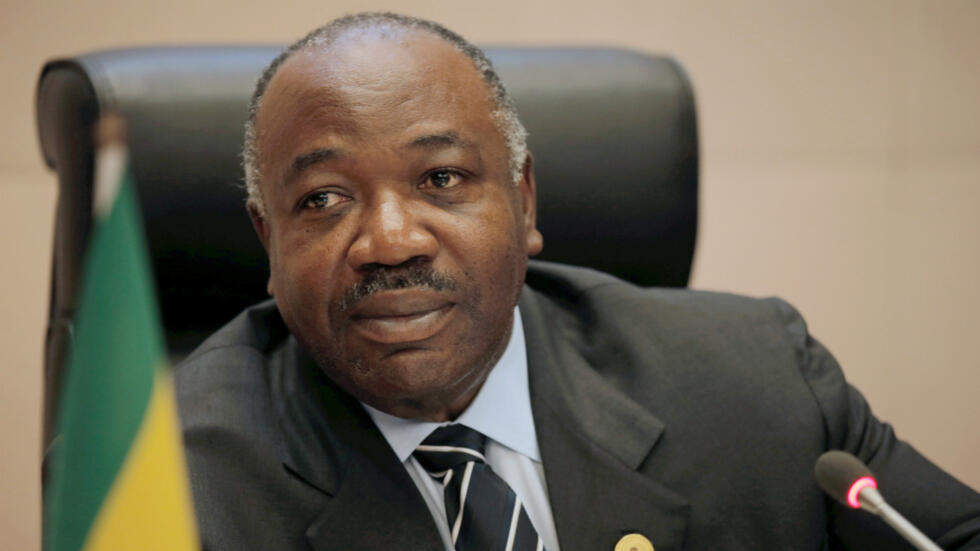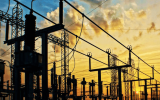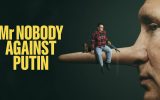When you hear democracy, it is another word for your right to life and the dignity of life.
Often defined in the words of Abraham Lincoln, as the government of the people, by the people and for the people.
But before the early Athenians ever contemplated democracy in 508 – 507 BC, it was the sad reality that government was not essentially about the people.
Most often than not, it was about a crown, a king and his wishes. And, “Your wish is my command,” was all that one could say. Docility had become a way of life.
“I am the State,” as proclaimed by the French king, Louis XIV, gives a clearer picture of the haughtiness in the hearts of men with power outside the confines of democracy.
His pleasure was all that mattered and his subjects were made to bear the brunt of all that he ever desired. At his request, men and women including children were elected to draw water, hew wood and plough his field.
And in societies where this despotism had reached a crescendo, maximum rulers indulged in self-deification and sought to be worshipped. Naram-Sin of Akkad during his reign in 23rd Century BCE declared himself a god.
The king’s word was law. And no mortal dared to question it. This was the cruel reality in every society where there was no democracy. It was the rule of men. Mean men. Might was right. Conquest was the norm. And servitude was what was served.
God help you, the king does not find your wife attractive, like King John of England, also known as John Lackland, who was in the distasteful habit of forcing himself on the wives of his subjects.
Countless times, the dignity of womanhood was abashed and this continued without restrain, in the absurd practice of jus primae noctis, where a king had the right to be with a bride on her wedding night in dishonour of the groom. King Gilgamesh of Uruk was notorious and guilty of this indignity.
Accounts abound in history, where the dignity of human life was constantly perverted, like in ancient Rome, where able-bodied men were cajoled to fight and die in a blood sport while entertaining the emperor and his guests.
These gladiators or swordsmen, as they were called, were mostly forced slaves, schooled under harsh conditions, socially marginalised and segregated even in death.
Many more died ignoble deaths at the slightest provocation. Eyes were gouged out and limbs were cut off at the king’s behest. It was official barbarism at its height.
Wailing mothers in their old age, were not spared the agony of watching their children as they were tied to the stakes and burned, on excuses as flimsy as holding a dissenting view on any issue of interest outside the king’s known belief. It was called heresy.
Galileo Galilei narrowly missed the burning stakes but could not escape a harrowing life of jail, when he dared to publish his research findings on Geocentricism, which revealed that the earth was not the center of the universe as was officially taught.
He was subsequently arrested, maltreated and tried in 1633. And the Roman inquisition found him vehemently guilty of heresy. He later died in prison under dehumanising conditions for his scholarship and research work on Heliocentricism, which established the sun as the center of the universe.
Interestingly, the successes of space expedition, satellite stations and information technology are all today founded on this singular discovery.
Is it not strange to imagine, that there was ever a time that people were not allowed to think for themselves? Or risked going to jail for making use of their minds? Yes, it sounds absurd. And yet it was true.
And it is still true to this day, that power corrupts and absolute power corrupts absolutely, in the voice of Sir John Dalberg-Acton. Or how else does one explain the fantasy of the claim of blue blood, be it literally or figuratively, when all of human life flows in the veins with blood not other than red.
Is it not warp to consider, that one’s birth mate could be proclaimed a prince while another is pronounced a commoner, subject or slave, depending on the prevailing circumstance of his birth? Yes, this sounds awkward. And yet it is true.
It is true, that the hardworking son of a commoner, no matter his brilliance could never aspire to lead his people to greatness. And the beautiful daughter of a peasant, her virtue notwithstanding was forbidden not to marry the prince and was punished if he was in love with her.
The segregation was epic. And the injustice was unbearable. There were different set of rules for different set of people. The names of the British bicameral legislature, the House of Lords and the House of Commons, stands as a monument to this epic inequality and class barriers.
Then something happened. The people’s fortitude to bear this repressive yoke gave way under the weight of the oppression. And the walls caved in. The human spirit created in freewill, broke free and cried for liberty.
And like the Arab Spring of recent history, the cry for liberty rented the air. Voices of dissent collated in the echo. Like minds came together. Victims spoke in tears. Witnesses feared for their fate.
Tempers flared. Cowardice and docility were no longer options. Citizens started asking questions. Everyone spoke in one voice. It was liberty or nothing. Civil disobedience and pockets of protest were reported in many provinces. Anarchy and revolution loomed.
In Hungary, King Andrew II, fearing a possible break down of law and order, signed the Hungarian charter, The Golden Bull of 1222, which brought his powers, excesses and extravagance under check. The 31 articles were the first constitutional document in the history of Hungary and by its enactment the seed of the rule of law was planted.
In England, King John, hurriedly signed the English charter, The Magna Carta of 1215, to avert a looming anarchy and a possible revolution. He yielded to the people’s demand that he must renounce his arbitrary rights and absolute powers.
He conceded to the will of the people that his decisions must be subjected to the rule of law. The signing of the Magna Carta document further influenced the development of constitutionalism and the rule of law.
The principle of the Rule of Law is the fulcrum of democracy. It is hinged on the belief that all are created equal. And like the Statue of Assisi, the principle of the rule of law is blind to color, status and creed. It was developed to check the abuse of power and the betrayal of public trust by people in authority. The rule of law demands accountability in public office.
The Constitution is the totality of the rule of law. This is why it is called the grundnorm of all laws. It provides the basis and authority for subsequent laws. It is considered the most important document in any democracy. It defines the applicable system of government, outlines its branches and delineates its structures.
The conventional branches of government in any constitutional democracy is typically the executive, legislature and the judiciary. While the legislature is saddled with the task of making laws for good governance, the executive is tasked with the implementation of these laws. And it is the responsibility of the judiciary to interpret, arbitrate and ensure compliant with the law.
And to ensure that non of the branches of government overreaches itself, or exercises excessive powers in the line of duty, responsibilities are clearly spelt out and divided into distinct areas. It is called the Separation of Powers. Also known as the trias politica principle.
The intention is to prevent the concentration of power in one branch. And this makes room for Checks and Balances. Judicial Review, Presidential Veto and Congressional Override are examples of such powers accorded each branch to check the excesses of the other.
This is considered necessary owing to the reality that no human being is infallible. And also in recognition of the frailty of the human mind. History has proved it time and time again, that it is necessary to set the rules and draw the lines for people trusted with political power and public office.
As many who had once come to power with messianic aura and the appeal of morality had later turned full cycle and became draconian. This was the sad experience with Mr. Robert Mugabe in the not too far away Zimbabwe.
Nigeria as an independent nation has had more than its fair share of tyranny and full blown dictatorship under many military interregnum where men in uniform had bared their fangs with unbridled power.
The Nigerian parliament, represented in the National Assembly and State Houses of Assembly, being the bastion of democracy, are always the first in the line of fire and the worst hit casualty in every military incursion into our body politic.
The legislature as the lawmaking organ of government having been routinely dissolved, has always had its hallowed chambers shut down and kept under lock and key by gun-wielding men in uniform.
This political heist is always followed by the criminal suspension of the constitution, which in turn throws open the floodgates for arbitrariness and lawlessness. And subsequently, this reduces the reins of constitutional power to a free fall for military whims.
In 1967, Nigeria suffered its worst casualty from military incursions into politics and governance. Military dictators refusing to be teachable and amenable to strong reason and superior argument but irked on by ego and muscle flexing, defied every reasonable entreaty and advice, and plunged the nation into an avoidable three year old Civil War where over 3 million Nigerians including women and children were killed.
In clear violation and usurpation of judicial powers, civilians were arbitrarily arrested and arraigned before military tribunals without any known legal representation and in essence, denied the right to fair hearing.
Without due diligence, independent investigations and an effective right to appeal, people were summarily tried and sentenced to death.
Against the principle of Habeas Corpus, which does not allow for an accused to be detained without trial, people presumed innocent under the law, were herded into jail and kept in detention centers indefinitely without trial. And some were held incommunicado from family and friends, including their personal physicians.
Press freedom did not fair any better. At some point, the infamous Decree 4 of 1984 was introduced to gag the press. The media was constantly suppressed.
Leading members of the Fourth Estate of the Realm were constantly harassed and many paid the supreme price for daring to stand on the side of truth in the exercise of their duty as the watchdog of the society. It was a sad episode in the annals of Nigerian political history.
From one military incursion to another, the Nigerian canvas was always stained with blood. And the leopard, true to type, could not change its spots.
At the height of this military siege on Nigeria, when constitutionalism, rule of law and human rights were trampled under the jackboots of the military, a Nigerian citizen was summarily executed, after he was arrested and denied a fair hearing before a court of competent jurisdiction.
He was picked up by the military junta on the allegations of drug trafficking and in the absence of an enabling law to send him to the hangman, the military leadership hurriedly issued a new decree and backdated it in order to find him guilty and punishable by death.
This retroactive decree was considered barbaric and presented the Nigerian leadership at the time as draconian and bloodthirsty before the international community.
The rest of civilisation and leading human right groups across the globe rose in strong condemnation. Whether Nigeria has healed from this butchery is arguable but the scar has remained with us years after.
After a cumulative 30 years of military dictatorship in Nigeria, it has been observed that the predominant political mindset is still that of dictatorship and strong men instead of strong institutions.
The average Nigerian citizen who has lived a better part of his days under a dictatorship and the rule of men, instead of the rule of law, is still encumbered with its vestiges and finds it difficult to appreciate the fine nuances of participatory democracy.
Asking questions and expressing a dissenting view on any policy of state is still viewed with suspicion and seen as an attempt to subvert government and undermine the State, despite the right to the Freedom of Speech as enshrined in the Nigerian constitution.
Every Nigerian citizen is guaranteed the right to Freedom of Speech alongside other fundamental Human Rights in Chapter IV of the Amended 1999 Constitution of the Federal Republic of Nigeria. These are;
- Right to Life
- Right to Dignity
- Right to Personal Liberty
- Right to Fair Hearing
- Right to Privacy
- Right to Freedom of Thought, Conscience and Religion
- Right to Freedom of Expression
- Right to Freedom of Assembly and Association
- Right to Freedom of Movement
- Right to Freedom from Discrimination
- Right to Own Property
In Nigeria, sovereignty lies with the people, as enshrined in Section 14 (2) of the amended 1999 constitution.
And under the principle of Universal Suffrage and other related matters, citizens are accorded full rights to elect their leaders, hold them accountable and vote out incompetent leaders in periodic elections.
In 2011, the Freedom of Information (FOI) Bill was passed into law and added to the rights and powers of the Nigerian citizen to strengthen his arms in holding leadership accountable for its actions and non actions.
In the explanatory note of the Freedom of Information (FOI) Act, it is written that the Act makes public records and information more freely accessible. And provides for public access to public records.
And still under the principle of Universal Suffrage, every Nigerian citizen from the age of 18 years is guaranteed the right to vote in all elections. He has an inalienable right to register and get his Permanent Voters Card (PVC) during the Continuous Voters Registration (CVR) exercise conducted by the Independent National Electoral Commission (INEC).
This comes with his right to vote on the day of election. Be it the legislative elections or any election to elect people into the executive arm of government, right from the local government level through the state to the federal level.
On the election day, the Nigerian citizen has the following inherent rights as a voter;
- He has a right to go to the polling unit where he had registered to vote,
- He has a right to be accredited after he has presented his Voters Card PVC,
- He has a right to cast his ballot for the candidate of his choice without interference,
- He has a right to stay around the polling unit after casting his vote, at least within 200 meters from the voting area to observe the electoral process,
- He has the right to witness the declaration of election results from his polling unit and to keep records of same,
- He has a right as part of his civic duties as a Nigerian citizen to record and forward evidence of any incidence to the electoral umpire INEC.
It is worthy of note here, that the rights and responsibilities of the Nigerian citizen does not start and end with the elections. It is necessary that the Nigerian citizen fully understand that voting in an election is only a phase of the democratic process.
The tenets of democracy demands that the citizens hold both elected and appointed public officials accountable to their oath of office by;
- Attending public hearings on budgets,
- Asking questions on how public funds are spent,
- Reporting any negligence and dereliction of duty on the part of any public official,
- Organising and participating in peaceful protest against any obnoxious laws and arbitrary acts of government.
These are all patriotic acts of nation building that promotes transparency and accountability in the affairs of government.
The virtual Office of the Citizen is considered the most powerful office in any contemporary democracy in the 21st century.
It is similar to the power of an employer. With his power to elect and reelect leaders of his choice, the citizen now exercises the power to hire and fire.
This is why it is now said that every society deserves its leadership, because democracy has given the citizens the power to take responsibility for their lives with the unfettered power to choose its leadership.
It was possible for bloodthirsty emperors to sit back and watch in excitement as citizens of Rome were hacked to death in a senseless blood sport, because the Romans then were timid and refused to take responsibility for their lives and question the bestiality.
It was possible for sexual perverts on the throne to molest young maidens and defile brides in the very presence of their spouses, because the supposed men of valor were scared and refused to rise to the occasion and defend the dignity of womanhood.
This is why it is said that, “our lives begin to end the day we become silent about the things that matter.” And from the benefit of hindsight, dictatorship thrives in the docility of citizens and tyranny festers in the people’s cowardice.
Apathy is the weakest link in a democracy. It is the demon that feeds the monster of bad and ineffectual governance. This is why it is encouraged by the divide and rule ploy of the mediocre in power.
While the unity of purpose is the strongest link in participatory democracy. This is why citizens in older democracies always come together to speak in one voice against any perceived injustice.
They do not wait to get a knock on the door from the evil that goes around, because today’s victim was yesterday’s survivor. And today’s survivor will be tomorrow’s victim if everyone stays aloof and do nothing.
Within the ambit of the law, we have the right as citizens to discuss the affairs of our government as it affects all of us. We are authorised by law to ask questions and appraise the performance of the government of the day. And demand a better deal.
There is nothing greater than the will of a people determined to be free. When citizens come together, there is no tyrant too strong and no dictator too mighty to overcome. It is called People Power.
It is our collective destiny at stake. And we cannot afford to leave our woes on repeat. Not again. What becomes of our lives and our future as a people are all embedded in the choices we are about to make. The future of our children and the safety of our loved ones are now the direct consequences of the choices we will make or fail to make in 2019.
So when next you hear democracy, remember that this is all about you and what you choose to make of your life.
This message is from the Red Card Movement Nigeria.














